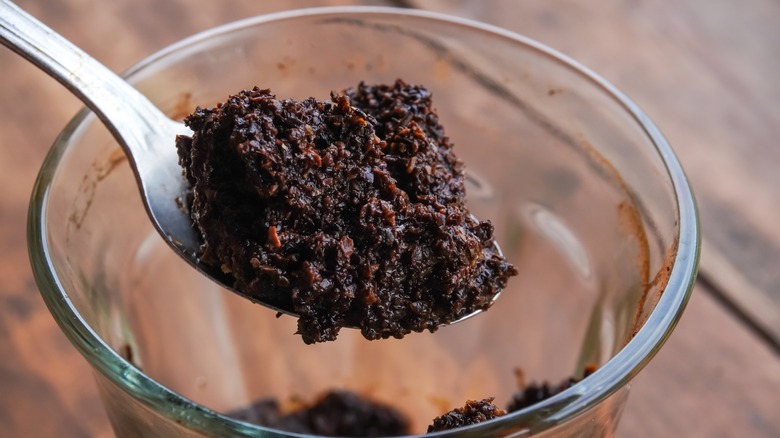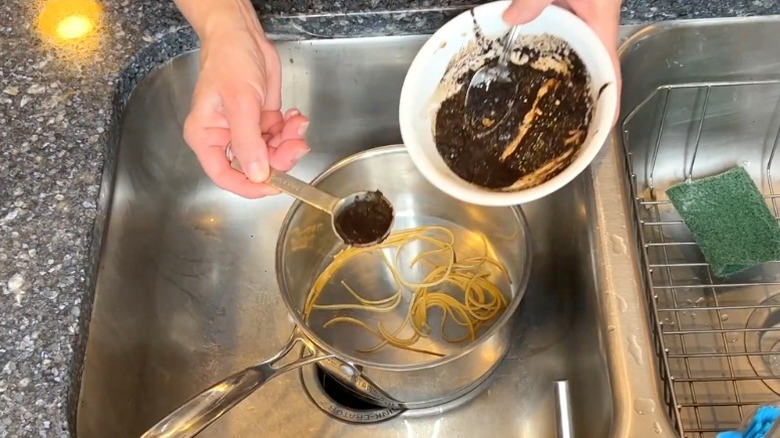Coffee Grounds Are The All-Natural Solution You Need For Sparkling Clean Pots & Pans
At this point, you likely know used coffee grounds belong almost anywhere but the trash. Green thumbs especially appreciate the power of sprinkling leftover coffee grounds on the lawn to get the most out of their plant-friendly nutrients. Yet, it isn't just the chemical qualities that make old grounds worth keeping around. In fact, you can enjoy the mechanical cleaning capabilities of coarse coffee without even leaving the kitchen! As soon as the morning pot finishes brewing, set some grounds aside by the sink. Now, you have a handy mild abrasive solution to clean stuck-on grime from your dinnertime pots and pans so they stay sparkling, saving you energy on a normally labor-intensive chore.
Coffee grounds make a great stand-in if you like to use baking soda to easily revive burnt pots and pans, letting you hold onto that quintessential cleaning staple for other uses around the home. The gentle grit grounds supply can safely scour stainless steel, ceramic, and even non-stick cookware without scratching. Save the salt, and use coffee grounds to clean your cast iron as well. Put a few tablespoons of used coffee grounds in your pot or pan. Buff it around with a paper towel or rag, scrubbing away any remaining food residue for a like-new shine. Once complete, get even more use from them by dumping your reused grounds in the compost. Or, simply dispose of them in the trash (never in the sink!) without regret.
How this coffee ground solution keeps cookware shining
Coffee grounds can go straight from the brewer and into the pot and pan for immediate scouring power, or you could mix up a custom cleaning concoction. For many, the best results come when you mix other agents with coffee. You can incorporate different abrasives, like salt or baking soda, into spent grounds. The coffee as a base gives the coarser materials some bulk so you can use less. Some also recommend cleaning dirty pots using warm water and soap with a tablespoon or so of coffee grounds blended in. Alongside a sponge or stiff-bristled brush, the grounds assist the degreasing soap with an extra hit of scrubbing might.
With these additions, foresight becomes an imperative. Since there are coffee grounds involved, dumping everything down the sink is out of the question. At the same time, you can't pour a pot of soapy water in the trash. So, what about the compost? Oddly enough, you can still compost the used coffee grounds even if you added a small amount of sea salt and baking soda as an added abrasive, as long as your soil isn't already high in salts. The salt can add some essential minerals while helping to accelerate decomposition. Likewise, you can add soap to your compost pile IF you used the right kind. Biodegradable soaps can be safe to use and actually prevent certain pests. Anything anti-bacterial, though, may harm beneficial micro-organisms in the compost. If you've got standard Dawn or another degreasing, antimicrobial dish liquid, use it with minimal water so you can toss it in the trash after scrubbing your cookware and prevent any issues in the drain or the garden.

